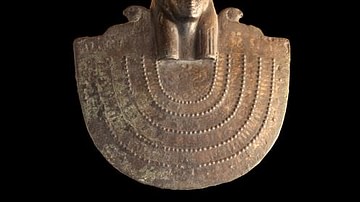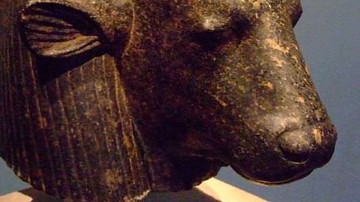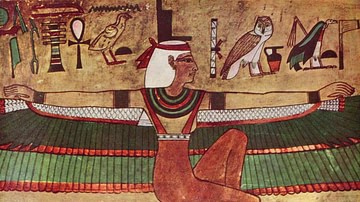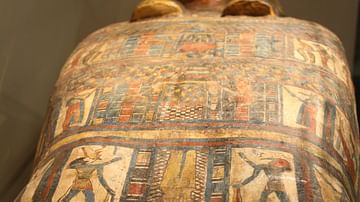Egyptian goddesses are among the best-known and most popular from antiquity. Images of Isis, Hathor, Bastet, and Selket – among many others – are world-famous. The popularity of these female deities reflects the high status of women in ancient Egypt, who were regarded as almost equals to males and held prominent positions.
Among these was the prestigious office of the God's Wife of Amun, the counterpart to the male high priest of Amun, the most powerful religious cult in ancient Egypt's history. Women also ruled, periodically, from early queens such as Mereneith (c. 3000 BCE) to Cleopatra VII in 30 BCE.
Included in this collection is the goddess Astarte, technically a Phoenician deity but regarded by the ancient Egyptians as a consort of the god Set. Omitted is the goddess Ma'at, who personifies balance and harmony and was understood to inform the powers of all the other deities, both male and female, as well as the decisions of the king, the law of the land, and the proper behavior of the people. Ma'at, therefore, is always understood as present in any representation of the other deities of ancient Egypt.











